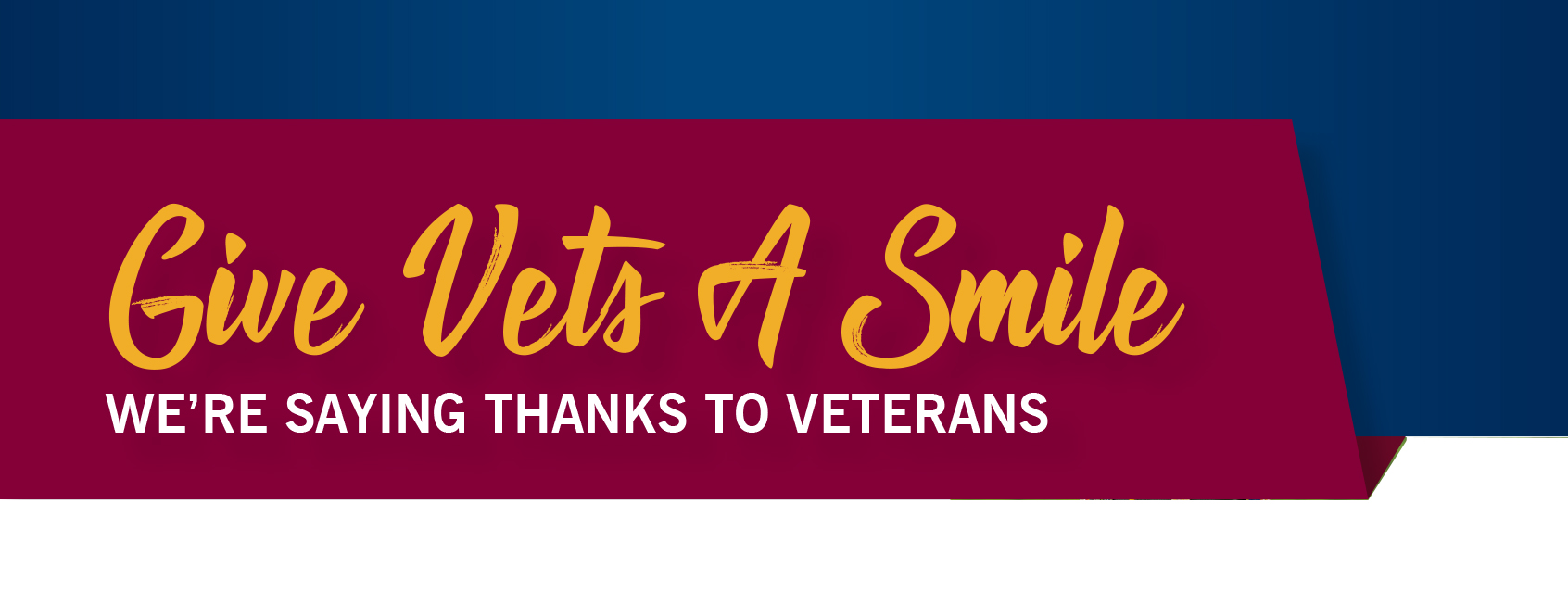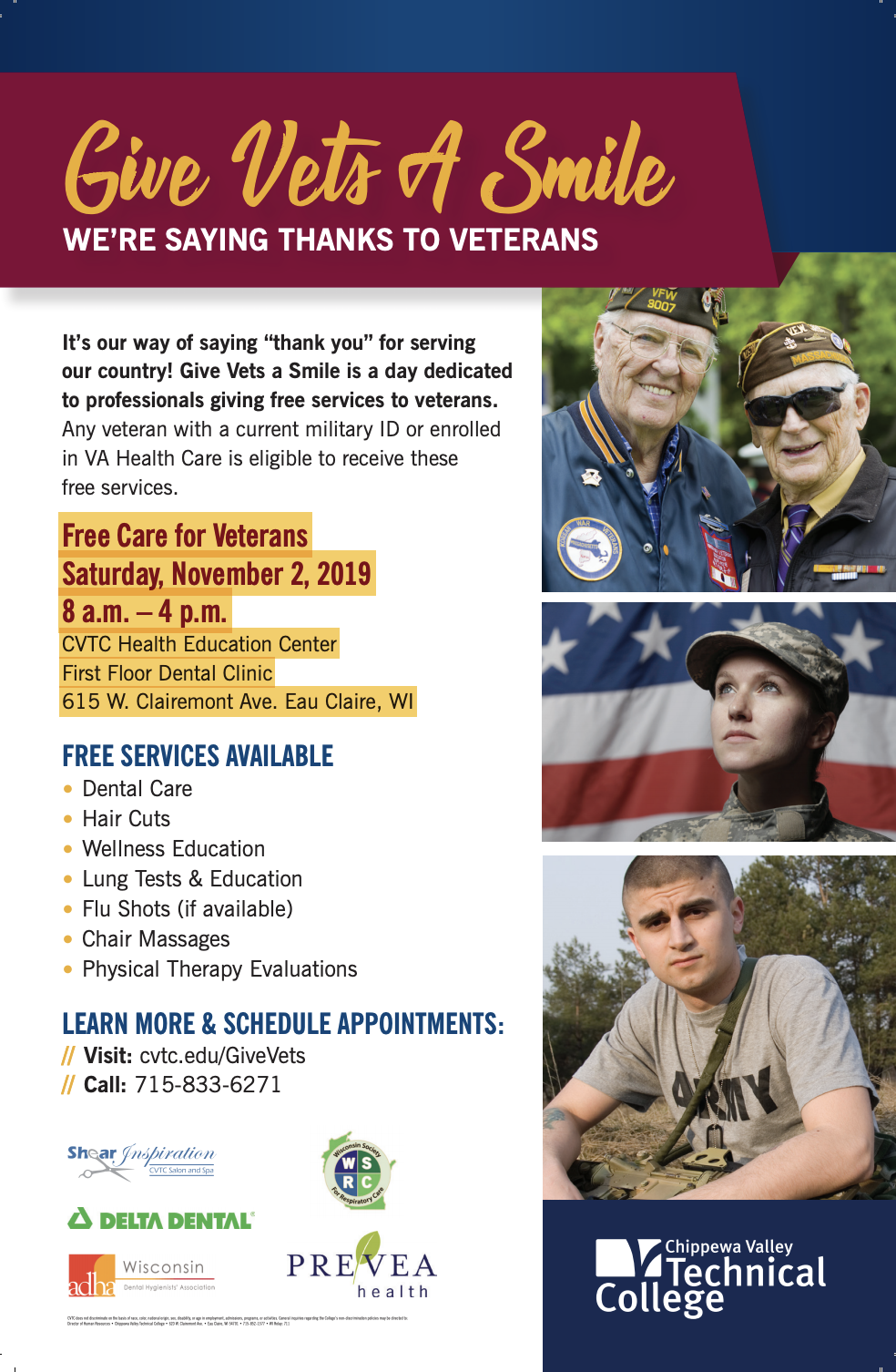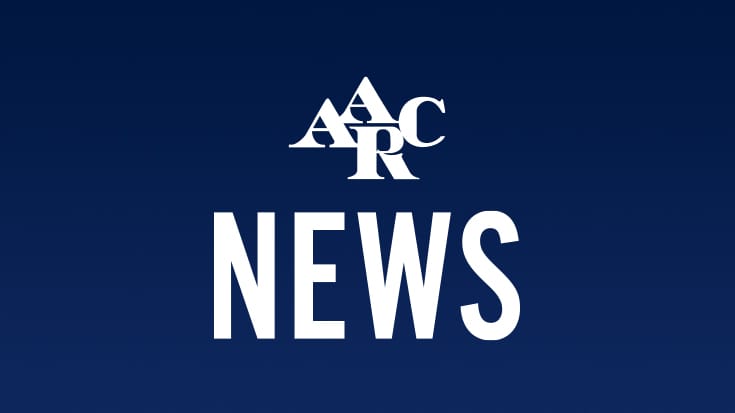

This flyer is being circulated throughout the Eau Claire area to let veterans know about the services they’ll find at the Give Vets a Smile event this year.
Interprofessional education is taking hold in many health professions programs and respiratory care is no exception. These initiatives are designed to foster collaboration between students from various disciplines who will find themselves working together once they are on the job.
Sometimes they can lead to other benefits for students too, and that has certainly been the case at Chippewa Valley Technical College (CVTC) in Eau Claire, WI.
“We had previously started an interprofessional education effort on VAE and Oral Care with the dental hygiene program,” explained Respiratory Therapy Program Director Donald Raymond, MS, RRT. When the dental hygiene program director approached him about getting involved in a dentistry initiative called “Give Vets a Smile” in honor of Veterans Day last year, he was more than happy to jump on board.
Give Vets a Smile provides military veterans with needed dental care, but dental hygienists at CVTC wanted to expand it to include other services as well, including lung health assessments and education. Raymond and his students were the perfect people to address that component.
“Our students perform vitals and take patient histories in collaboration with nursing students,” says Raymond, who actually coordinated all the expanded services offered last year. In addition to the assessments, his students set up a COPD education table and provided education to 12 veterans who came to visit with them in 2018.
The students all received community service hours for their participation, but most importantly, they gained valuable experience in interacting with people who are suffering from lung conditions like COPD.
This year’s Give Vets a Smile program at CVTC takes place Nov. 2 and Raymond and his students will once again be on hand to cover the lung health part of the initiative. Since he is also the District 1 representative for the Wisconsin Society for Respiratory Care, he’s opened volunteer positions to members of the state society as well.
Would he recommend the program to other program directors? “Absolutely,” says Raymond. “This is a tremendous opportunity to serve those that have served each of us. It is a positive opportunity for respiratory therapists, students, and respiratory therapy faculty.”
Email newsroom@aarc.org with questions or comments, we’d love to hear from you.











